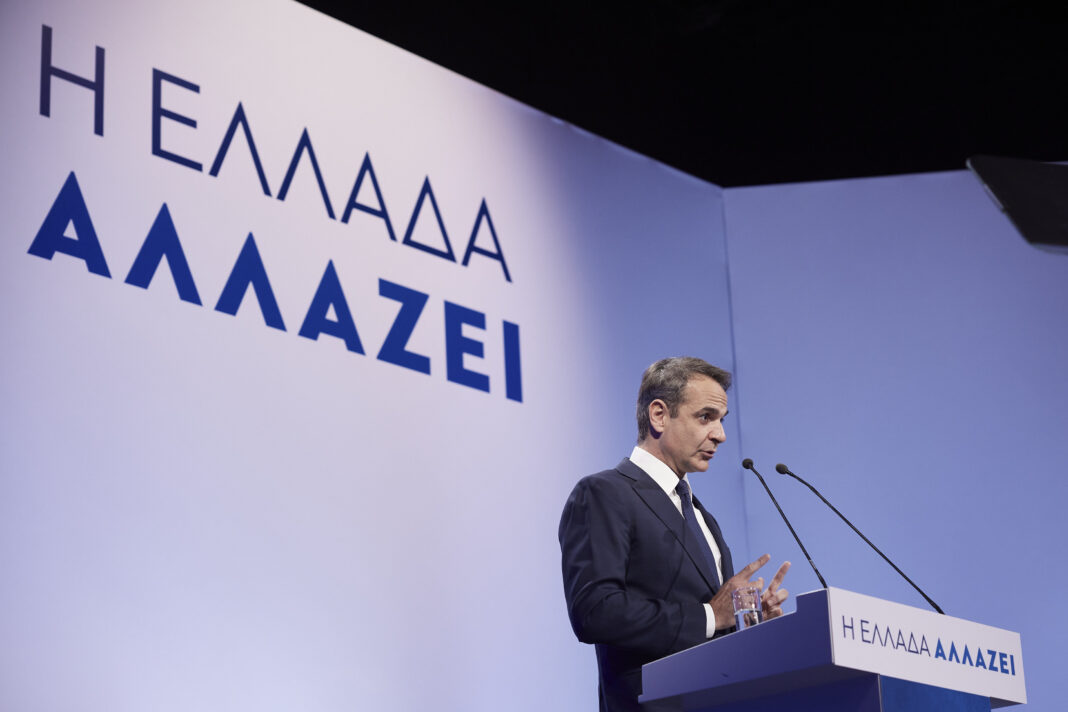Prime Minister Kyriakos Mitsotakis paid a visit to the works of the Patras-Pyrgos roadworks and the Piros-Parapiros dam in northern Peloponnese earlier on Tuesday.
The two projects are included in a total of over 80 projects taking place in the region of Achaia and budgeted at over 3.7 billion euros. The road project is three months ahead of schedule, Deputy Infrastructure Minister Giorgos Karagiannis said on Facebook after accompanying the premier. The dam will provide high-quality drinking water for hundreds of thousands of residents, he added, while a third project of a double railway line (Rododafni-Rio) will allow the trains from Athens to reach the port of Patras.
The railway project “will change the image of the entire western Greece and establish Patras as a true entrygate for the entire country,” Mitsotakis said, while reducing travel time between Patras and Athens to two hours. Nearly 5.5 kilometers of train tracks will be built below ground in Patras, in order to ensure the project qualified for European Union funding,” Mitsotakis added.
Patras is a microcosm of the country’s trajectory and its push toward future growth, the prime minister said during an address later in the evening on Tuesday. In a campaign speech ahead of national elections in 2023, whose date is not yet set, Mitsotakis spoke of the government’s reforms in academia, the clearance of the outstanding pensions, the digital transformation of the state, and the focus on improving primary care.
The city will lead Greece toward 2030, he said, with its large projects, the slowing down of demographic loss, the drop of unemployment by 10 percentage points in 2019, and the addition of over 10,000 businesses to Achaia Prefecture, based on the state’s care and the dynamics of the region. Patras and Achaia are vectors of growth. In addition, the construction of the Patras to Pyrgos road will also continue and become a reality in 2025.
Greece is already another country and will not experience again what it went through in the crisis, Mitsotakis said, and noted that he was in Patras – with a major port connecting Greece with Italy – to describe how the region could become Greece’s western gate.
The PM also spoke of the 42-billion-euro support provided to the economy and labor during the coronavirus pandemic, and referred to energy price hikes, underlining that Greece was first in Europe to tax excess profits by energy producers. He also said the government’s agreement with supermarket chains to keep prices of major goods stable – the household basket of goods – was a measure that other countries were now applying.
Among other issues, Mitsotakis said the government had reduced taxes and contributions, raised the minimum wage twice, and subsidized energy without going over the budget restrictions. In addition, Greece was reducing its public debt at a faster rate than any country in the Eurozone, which would allow professions such as doctors and security forces to see salary raises.
Greece is entering an election campaign seasion in the midst of several challenges, but the main opposition’s tactics will not deter him, he asserted, nor would he allow any party or personal interest to threaten the country’s stability. As he underlined, all Greeks experienced continuous crises, and they know which government overcame them successfully – they prefer a good government that makes mistakes to a wrong government, as they can compare and judge for themelves.
During elections, he said, he was certain that the Greek people will vote for stability, consistency, and continuity.
Our goal is an independent Greece, led by New Democracy, which will lead to national collaboration of all those who believe in the country’s need for drastic modernization, the PM said. “Shall we get ahead, or stay behind? Do we need to experience disaster for a second time?” Mitsotakis said, wrapping up his speech.
SOURCE; ANA-MPA







